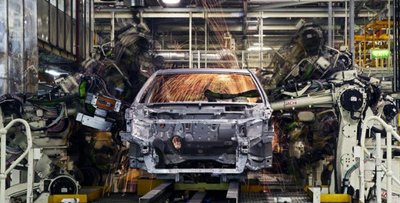Engineering the management of change
By Jo-Anne Ruhl, Managing Director Australia and New Zealand, Infor
Tuesday, 05 November, 2013
With cheap overseas labour, a high dollar and an ever-increasing global market putting pressure on Australia’s manufacturing sector, many automotive companies are currently facing tough times. For automotive manufacturers to remain competitive and profitable, organisations must deliver effectively and reliably on all fronts: speed, cost, quality and innovation. With the local industry in steady decline, these factors will only become more critical to the success of automotive manufacturers.
To become both more innovative and more efficient, the automotive industry must extend ‘the management of engineering change’ into ‘engineering the management of change’ across all aspects of the business and supply chain. This engineered approach to managing change allows companies to outpace the competition and deliver the best product possible to customers who are flooded with automotive options.

The new auto industry dynamics, and the need for more sophisticated information analysis and streamlined communications, have created a capabilities gap in the software infrastructure at many automotive suppliers. Auto suppliers that will gain a competitive advantage will be the ones that find a way to gather and analyse information faster and put it in the hands of employees who need it to make faster, smarter decisions.
Today’s technologies are designed to do just that. Advancements have enabled technology to support new and more integrated product change processes that extend far beyond the design and engineering offices. They can support both very structured processes and newer, Web 2.0-style collaboration. Market leaders are moving as fast as they can - with add-on capabilities or new application implementations - to improve their change processes. Engineering new change processes will allow companies to keep up with the incredible speed of change in the industry and its products.
Additionally, traditional technologies that are fundamental to the success of the auto manufacturer, such as enterprise resource planning (ERP) and product lifecycle management (PLM), were not designed to address the added complexity and need for faster decision-making in today’s automotive industry. In order to be effective, they must share information with each other and with external customers and suppliers. Enterprise applications must facilitate rapid addition of new suppliers at each tier. A fully collaborative change environment can reduce the time required to reach stable production and fulfil customer requirements by up to 50%.
The rise of software as a critical component also presents significant opportunities for suppliers in both vehicle performance and customer lifestyle. Performance monitoring can help drive service-related revenues. Lifestyle technology helps build brand allegiance and offers opportunities to tie into applications and on-demand services currently pervading the mobile device market. Managing changes in these contexts requires access to fully integrated product, supply chain and service information. This access relies on having an overall program view of product changes and the process controls in place to reallocate tasks and resources appropriately.
Leaders are developing appropriate information flows to feed cross-disciplinary analytics. These systems empower teams to make sound decisions. The benefits include faster throughput of changes, fewer recurring problems and improved customer evaluation scores. The new face of competitiveness, much like today’s automotive products, requires the highest degree of efficiency and innovation. With Australian manufacturers all looking at ways they can improve efficiencies in a tough environment, each company must craft processes to ensure complete visibility, effective collaboration and unprecedented control across all disciplines and with all trading partners on both the buying and supplying sides. The key to success will be finding an automotive industry-specific solution that can be implemented quickly and affordably today, so your company wastes no time transforming its operations.
Now is the time to take action. Modern technology tools are available to help companies manage change better and faster. These companies can use new technology to improve efficiencies within the business and gain a strong advantage over competitors.
The environmental impact of AI: a help or hindrance for industry?
AI offers powerful tools to improve sustainability in water, waste and energy systems, but its...
Securing industrial networks: three architecture strategies
The goal of industrial cybersecurity is to enhance existing architectures with layered, pragmatic...
Digital integration in mining: from engineering to operations
Rising demand for critical metals is driving operators to adopt digital platforms to build...











